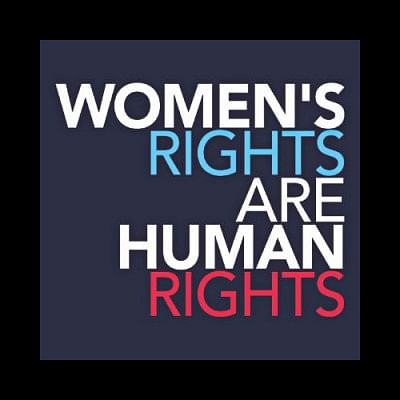Stop torture to protect women's dignity

Violence against women is strongly condemned in almost all national constitutions and international laws. Violence against women has many forms. Torture – both physical and psychological – is a common one. To prevent domestic violence, the government of Bangladesh enacted a law in 2010 called the Domestic Violence (Prevention and Protection) Act. In the same year, the Supreme Court of Bangladesh handed down a landmark decision in the case of Bangladesh Legal Aid and Services Trust (BLAST) v Bangladesh reported in 63 DLR (HCD) (2011) p. 1, declaring the imposition of extra-judicial punishment, or say torture, in the name of executing Islamic Sharia/Fatwa (religious dictum) unconstitutional and illegal. The case came to one High Court Division bench of the Supreme Court in the form of a Public Interest Litigation when numbers of news concerning violence against women were appearing in the media on daily basis. The news drew the attention of the Court which seriously dealt with the matter by calling upon the State agencies concerned. The Court found that women from villages are mainly the victims of extra-judicial punishment and torture in the name of Fatwa. As the question of legality of Fatwa was already then pending before the Appellate Division, the High Court Division in BLAST case refrained from making any analysis about it. The Court confined itself only to deal with the constitutionality issue of imposing extra-judicial punishment and torture in the name of Fatwa. Here it is to mention that the legality of Fatwa was first questioned before the High Court Division in another case titled Editor, The Daily Banglabazar Patrika v District Magistrate and Deputy Commissioner, Naogaon 21 BLD (HCD) (2001) p. 45. The High Court Division in this case declared Fatwa delivered by any unauthorised person illegal. Subsequently, this decision was challenged in the Appellate Division in the case of Tayeeb and Others v Government of the People's Republic of Bangladesh 67 DLR (AD) (2015) p. 57. The Appellate Division upheld the decision of the High Court Division with a further opinion that only properly educated persons may give Fatwa which, however, cannot be imposed on any person. Not to be confused, the Fatwa or Islamic religious edict was declared legal in “religious matters”, but Fatwa violating human rights and facilitating torture/punishment was declared totally illegal and a punishable offence
In BLAST case, the High Court Division's decision was based on two particular points. Firstly, the Court believed that the imposition of punishment on any person is an exclusive legislative authority of the judicial forum. No other entity or institution can impose punishment on a person unless he or she is proved guilty by a competent Court or Tribunal. Since Salishs in village are not legally recognised judicial forum under any law, the imposition of punishment is not legal as well. The Court specifically said that these Salishs were not found as village courts or arbitration councils under existing law. Rather these Salishs were alleged to be run by self-proclaimed religious leaders and elders having no legal recognition.
Secondly, the Court found that imposition of extra-judicial punishment is nothing but inflicting torture upon a human being. According to international human rights jurisprudence, the idea of human rights suggests each State not only to protect rights of its citizens, but also to respect and protect human dignity of each person. When women are inhumanly beaten, whipped and tortured by private persons having no legal authority, human dignity and dignity of women is simultaneously violated. Such violence does not warrant any safeguard either under the Constitution of Bangladesh or any international law. Precisely, article 35(5) of the Constitution prohibits “torture or cruel, inhuman, or degrading punishment or treatment”. Again, the UN Convention against Torture and Other Cruel, Inhuman or Degrading Treatment or Punishment confirms that freedom from torture is a fundamental human right and the prohibition of torture is an absolute and non-derogable principle of international human rights law. Apart from recognising freedom from torture, the Court explicitly declared the imposition of extra-judicial punishment and torture as punishable offence.
In this judgment, the Court specially highlighted the failure of the State to take preventive measures under international law in order to stop extra-judicially punishing and torturing women. At the same time, the Court reminded the State that its failure to comply with international law amounts to violation of international obligations.
Apart from prosecuting the persons responsible for torturing women in Salishs, the local government and law enforcing agencies were directed to take preventive measures ending such culture of torture. To raise people's awareness, the Ministry of Education was instructed to include reading materials in the syllabus discouraging the imposition of extra-judicial punishment and torture in the name of execution of Fatwa.
Almost seven years have passed since the decision was delivered. Still we see news of torture facing women in the name of Fatwa. It is hoped that government will increase preventive and prosecution measures to combat such a heinous crime and human rights violation in order to protect the dignity of our sisters, the women.
The writer is Lecturer in Law, University of Asia Pacific.

 For all latest news, follow The Daily Star's Google News channel.
For all latest news, follow The Daily Star's Google News channel. 



Comments